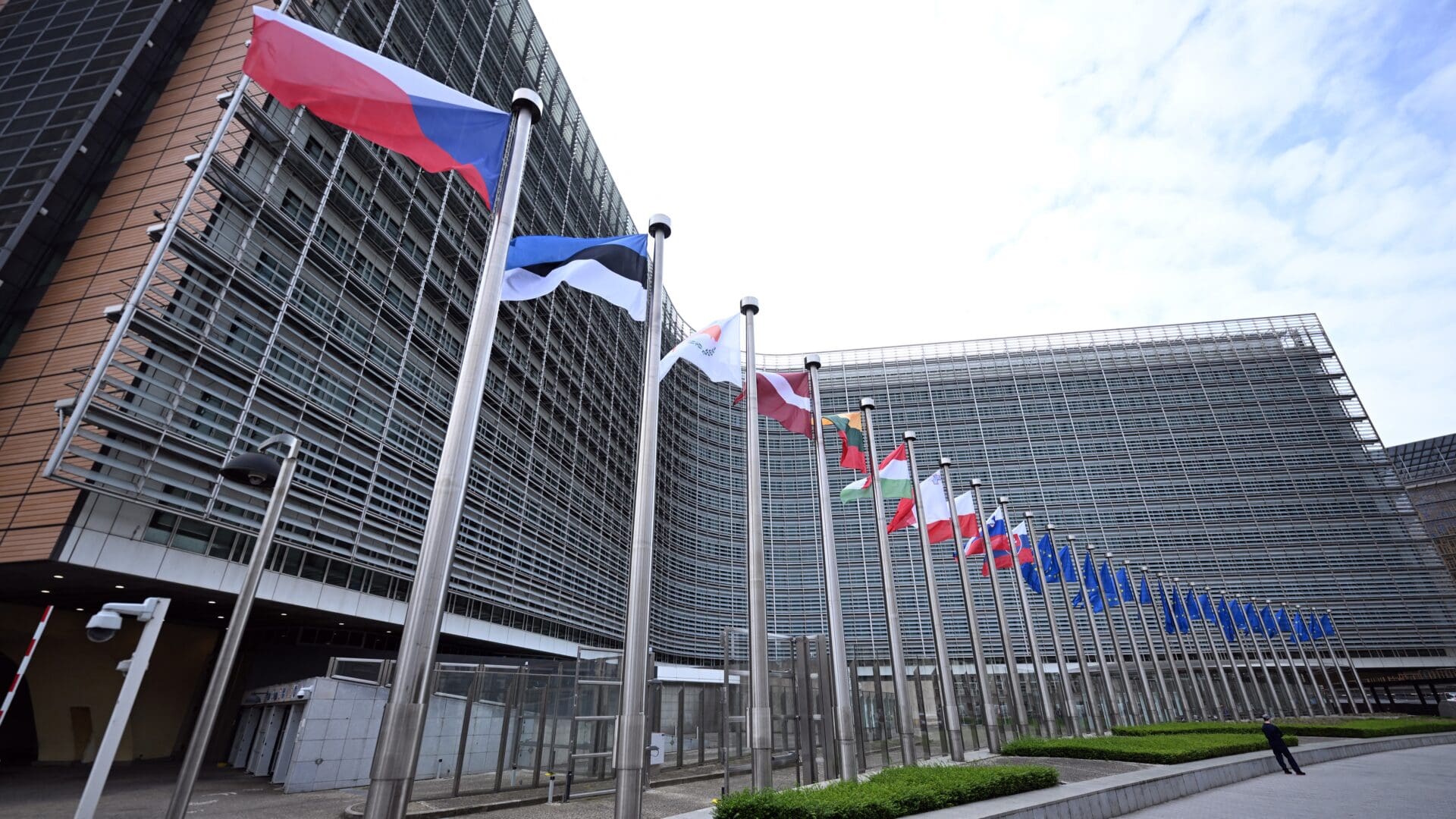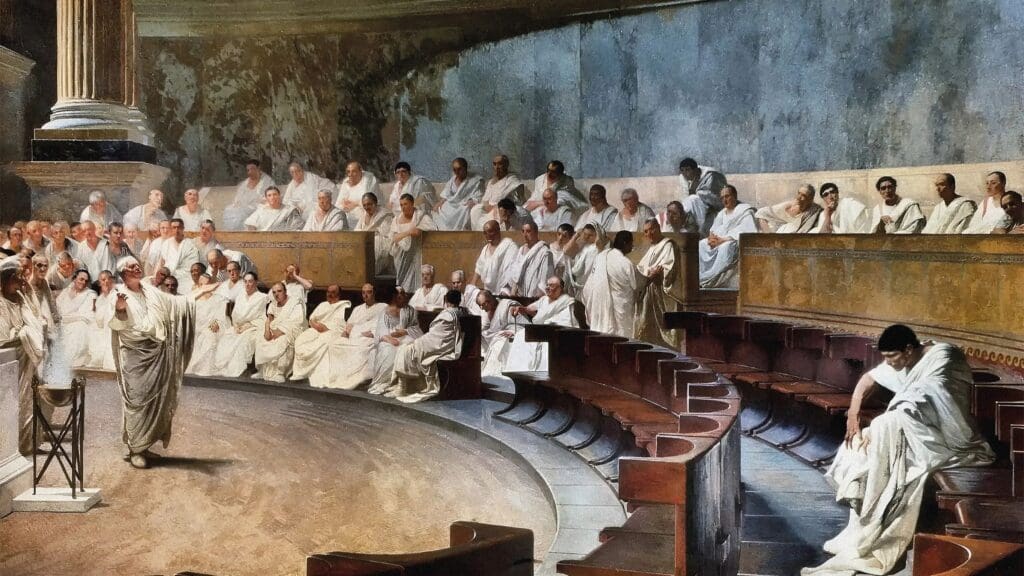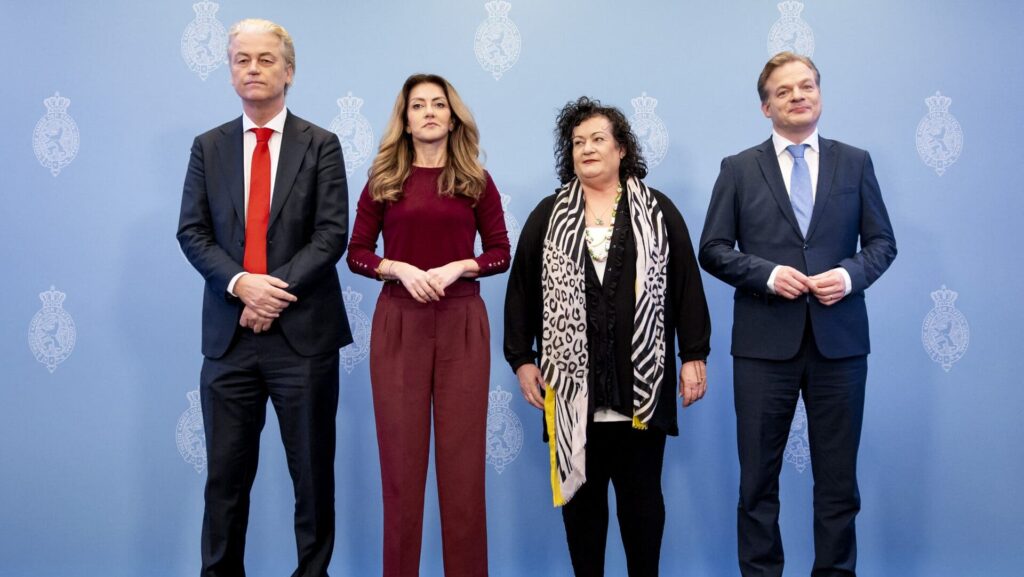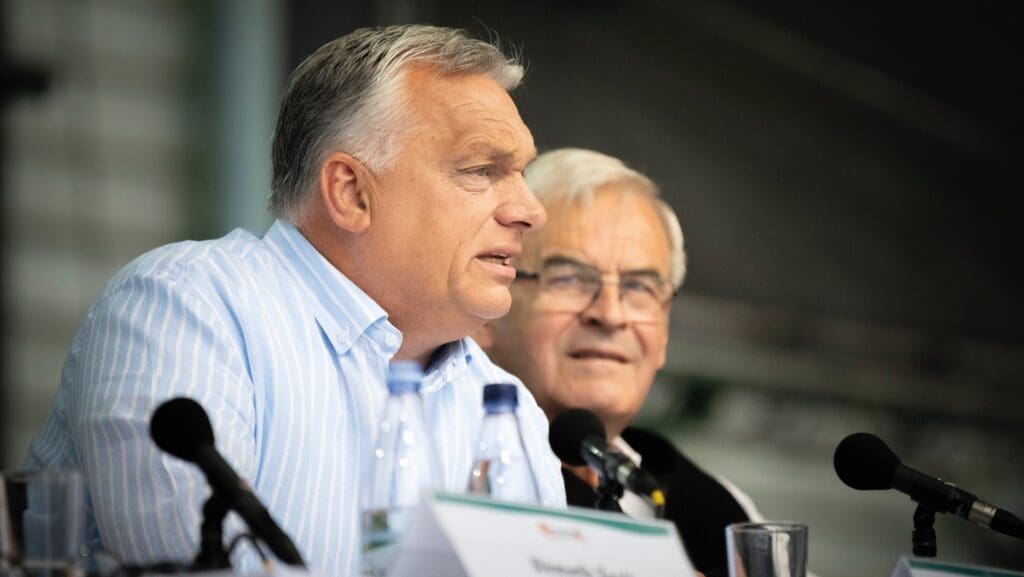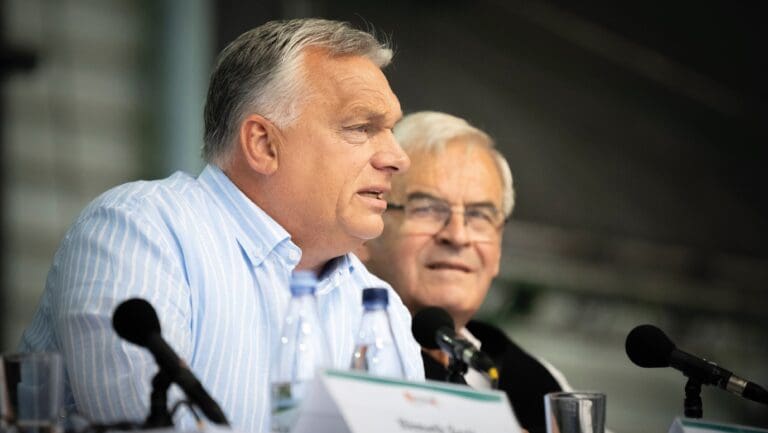This opinion piece is a translation of an article first published on Index.
***
It was exactly twenty years ago, on 1 May 2004 that Hungary joined the European Union. In the binding referendum held more than a year earlier, 84 per cent of Hungarian voters said yes to integration. We can safely say therefore that the accession to the EU was based on national consensus. At the beginning of the European project, Jean Monnet stated that what Europe was undertaking was actually ‘a journey towards an unknown destination’.
We Hungarians were in a similar situation when we decided to join. We knew that the European Union existed. We knew that ‘it’s the West’. We tried to be as informed as possible; we took part in the preparatory negotiations; there were those who took the trouble and chewed their way through the already extensive literature on integration; others developed some idea of what the Europe we were to join was really about during their trips to the West. But the goal remained unknown. We didn’t know, because we couldn’t know, what EU existence is like in practice, and where the newest political innovation of the old continent, the Union, was headed. Twenty years later, however, it is already possible to take stock. There are five lessons learnt:
1. The 2004 enlargement was the last successful undertaking of the European Union. The 2004 enlargement was an unequivocal, joint success of the Western states and the joining Central European countries. Let us cite just one fact here: the new members states have grown twice as fast as the old member states in the last 20 years. This is an outcome that is good for everyone. It is good for the European project as a whole, since the new members have dynamized Europe’s economy. It is good for the new member states, as they have been able to take advantage of the opportunities provided by the accession. And it is also good for the old member states, since their companies and investors were able to partake in the growth in the East. Eastward expansion is proof that the whole is greater than the sum of its parts.
However, it is sad that the Eastern enlargement is also the last successful project of the EU. All one needs to do to verify this claim is to visit the official website of the European Union. There, in the timeline dividing the history of integration into decades, every decade carries some positive message, except for one.
Peace in the fifties, economic boom in the sixties, and so on. But while the 2000s, according to the official website, were about further expansion, the 2010s received the first negative label: ‘A challenging decade.’ A real EU euphemism that hides reality. In the decade left behind us, the EU was in crisis, and it was such a long decade that, if we look at it this way, it has not ended to this day. The last success was the accession of Hungary and of the other countries of the region.
2. In the past two decades, the European Union has become Hungary’s natural political environment.
What was once a journey into the unknown has now become an everyday reality and a daily practice.
We learned how the European Union works and learned to navigate its hidden paths. And we are able to use this knowledge for the benefit of Hungary. Unfortunately, the learning phase lasted a little longer for us than for the other participating countries. It is peculiar that it was under the government of the leader of the political force that considers itself the most European, the Left that is now openly campaigning for the United States of Europe that we lagged the most in development.
In roughly the first five years of integration, in the Gyurcsány–Bajnai era, we had the lowest economic growth in the EU. Already in 2007, before the financial crisis, the Hungarian economy almost stagnated, while the Slovaks, Lithuanians and Latvians grew by 10 per cent, the Poles by 7 per cent, and the Czechs by almost 6 per cent. And then, during the crisis, we had the biggest decline among the V4 countries. We have largely overcome this backlog by now, but it hurts to think where we would be if we had not started at a disadvantage in the first place. All the more so because after the COVID-19 pandemic, the Hungarian rebound was one of the biggest in the region. The fact that only our exports increased by more than two and a half times between 2004 and 2023, mainly thanks to the European Union markets, speaks for itself. Joining created an opportunity that would have been a shame to miss.
3. We got Europe back, and with it the natural challenges of Hungary’s Europe policy returned, too. The fact that we have become familiar with the workings of the EU, that we have regained our natural political environment, necessarily carries with it a kind of disenchantment. At the time, we thought that by joining, we would come into a safe harbour, and all our problems would be solved in one fell swoop. But we already know that Madách was right: ‘The goal is death, life is a struggle/And the goal of man is this struggle itself.’
To put it more prosaically: on the one hand, treading and learning about the regular and hidden paths of the functioning of the EU is no longer an object of desire, but a daily job and often a soul-killing duty. On the other hand, as the Hungarian saying goes, ‘you get to know someone only when you start living together’.
And this is just as true for lovers moving in together as it is for the House of Europe. It turned out that the old, historical experience of Hungary related to the Western half of Europe do not only belong on the pages of history books, as they are not bygone: they are very much still present.
What we hear from the West more than once is the sound of condescension of a presumed civilizational superiority.
Brussels, located beyond the Meuse River, does not like our decisions stemming from our specific national values, just as Vienna, located beyond the Leitha River, did not use to like it. As in the past, they want to rewrite our legal system, they want to have a say in what can be included in the Hungarian constitution, they want to impose their ideas, which they think are more advanced, on us. The task is the same today as it was in the past. Although the most beautifully decorated pages of the cause of Hungarian freedom are written about freedom struggles, we achieved the greatest successes in legal battles: in royal inscriptions and April laws, bulls and decrees. There is nothing to worry about, we are ‘pros’ in this regard, so to speak.
4. Europe is no longer master of itself; it cannot find its place in the world. And the lecturing wrapped in civilizational superiority is unjustified if only because that civilizational superiority is becoming more and more worn out. By 2024, it became clear that in the new world order that is taking shape Europe would not be able to maintain its leading role. One figure is sufficient to prove this point: it is in other major political power centres of the world that significant economic growth is expected.
In China it is around 4 per cent, in the USA it is over 2 per cent per year. Europe, on the other hand, can be happy if it manages to push its economic growth to above one per cent. Looking at the structure of the growth, we can also see that without the Eastern members states not even this much would be possible: it is us who save the day. However, this is only the minor problem. We get some, in fact, more and more, lecturing, blackmail, we are trifled with by bureaucrats, and treated unfairly in legal and economic matters. We don’t like it, of course; we’re not happy about it, but we’re used to it, we can handle it. However, the notion of civilizational superiority does not stand compared to the outside world either. Europe is becoming less and less important, and if it is even condescending on top of that, if it makes economic and political decisions on an ideological basis, it only makes its situation worse.
The changed situation requires a changed understanding of its role on the part of the old continent. It should strive for a role that does not separate us from the rest of the world but connects us. Which makes the rest of the world not an enemy, but, if not an ally, a predictable partner. If it could find its place in the next world order, it could avoid becoming insignificant. Europe must learn to relate to the world in this way within the foreseeable future, and the cheapest way to learn this is from us, Hungarians.
5. We must save ourselves and Europe! No matter how much we Hungarians feel that arrogant Brussels should lie in the bed it made, and may the house they built collapse on it, it would be a mistake for us to come to this conclusion.
Our fate has become one with that of the European Union not only because of integration, but also for geographical, economic, cultural and civilizational reasons.
If the ship sinks, we sink with it. Of course, it is our duty to do everything we can to prepare a good lifeboat, but tossing and turning in a lifeboat in stormy seas is not the same as on an ocean liner. Therefore, the wisest thing to do is to remove the captain before he steers Europe’s ship into an iceberg. And the opportunity to do so is just now, more than twenty years after our accession.
In the past twenty years, not only has the European Union lost its magic, we have not only come to know its functioning, but we have also found allies in the West with whom we can set a new direction for the European project. More precisely, we can usher it back to the correct direction in which you it was moving at the time of our accession. Towards a European Union in which the internal dynamics of the community are not fed by federalizing, i.e., imperial aspirations cloaked in a sense of civilizational superiority, but by mutually beneficial cooperation between nations, the framework of which is provided by the institutions of the union. This means a change not only in internal attitude, but also in external posture.
Today, in terms of its foreign policy, Europe has been raped again, but this time it was not on the back of a Greek king of gods appearing in the shape of a bull, but on the back of the Wall Street bull. It is from there that it lectures the rest of the world and us—while it is no master of itself, but goes where the bull of Wall Street takes it. Right now, heading into a bloody conflict threatening a third world war, which the majority of Europeans, but the Hungarians as a whole, certainly have nothing to do with. Thank you, we want none of that! The upcoming European Parliament elections is the best opportunity for the people of Europe to regain control over their own continent and their own future. Europe is here, and it’s ours. Hands off!

